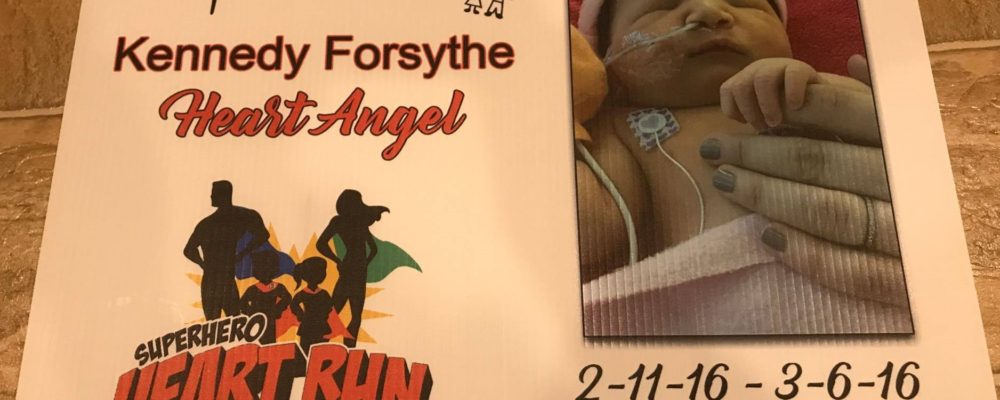October is Pregnancy & Infant Loss Awareness month. Unfortunately, many of our heart families walk this impossible road. Help-A-Heart wanted to share the story of one of our heart angel families this month to help raise awareness. Thank you to Nate & Emily Forsythe for writing & sharing the story of their precious daughter, Kennedy Ren Forsythe. Nate & Emily are the proud parents of Kennedy & Oliver (age 1). This is Part 10 of 11.
The Berlin
After several days of hit after hit after hit, we had our answer. Her heart would not heal. She would not leave the hospital until she had a new one. We knew, after our meeting with the transplant representative, she would not be placed on the transplant list until she was off of ECMO and stable. And we can’t get her off of ECMO because her heart isn’t healthy enough by itself.
F@#!.
Dr. T (her surgeon) and Dr. R (her Pediatric Cardiologist) found us in her room. Dejected. The hope that we had clung to for the last 21 days was almost gone. “We have one more thing we’d like to try.”
One more. One is better than “there is nothing else we can do,” which we had finally allowed ourselves to prepare for.
They told us about a Berlin. I will explain it, courtesy of Texas Children’s Hospital online. The Berlin Heart is a heart pump that maintains blood flow in babies and small children with serious heart failure and is an effective therapy to bridge children to heart transplantation. The Berlin Heart is a type of “artificial heart” pump that pulls blood from the left ventricle and then sends that blood to the aorta, thereby taking away extra work from the native heart. The device, which comes in several sizes, is not totally implanted inside the body. Physicians insert cannulas, or flexible tubes, in the heart and they extend through the skin and connect to a small pump located outside the body. That pump, along with its computerized drive unit, maintains blood flow. Children on the Berlin Heart can leave the intensive care unit and go to a regular hospital room where they receive rehabilitation and better nutrition while waiting for a transplant.
So we’re getting a Berlin! Great! When does that happen? We’re ready – let’s do this.
“Actually,” (ugh. Here we go.) “The process of getting a Berlin and the unit itself costs about 300 thousand dollars (Holy s&#!.), so we’re going to try a temporary pump to see how she handles that before ordering the Berlin. If the pump works, we can have the Berlin here within a day. If you’re on-board, we will schedule the OR.” They had prefaced this conversation by saying that they would do everything they could to keep her alive. But the moment we felt it was too much, we needed to tell them. We knew that conversation was coming. We agreed to one more thing.
Our hope balloon inflated a little bit more. They wheeled her down the hall and disappeared behind the elevator doors leading down to the Operating Room.
Now we wait.
Hours later she was back. With the imitation Berlin. Dr T found us in a quiet corner of the Family Lounge. “The pump is in and working. But she’s not out of the woods” (she never was). What should we expect? “The next several hours are critical.” They always are.
After a brief visit to her room (it was filled with people), we made beds out of the hard plastic couches in the Family lounge, gearing up to sleep at the hospital. We needed sleep, but we wouldn’t get it.
We got a late night visit from Palliative Care – the wonderful team that helps us understand that if (when) she dies, she was a fighter and we are good parents and it won’t be okay, but there are resources and support.
We try to sleep, hoping she makes it through the night.
She does. But this day would be critical. We had a few visitors that day. We spent time with her and talked about her future. We would stay at the hospital again that night. The staff couldn’t technically tell us we needed to be nearby, but we could see it in their faces when we asked them.
We drifted in and out of uneasy sleep, anxious for tomorrow.
The phone rings at 4:07 am.


